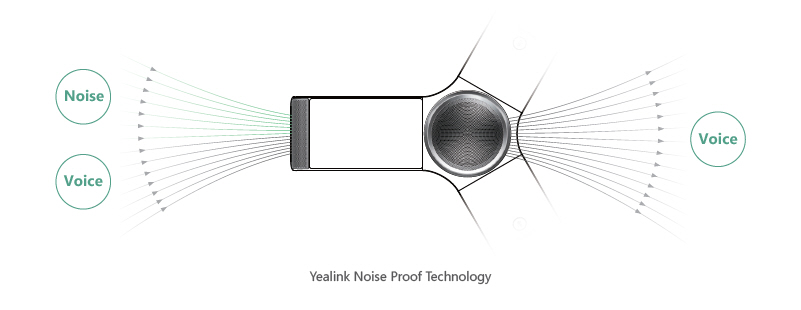Introduction to VoIP Telephony
In a world where communication is key, understanding the technology that facilitates our conversations is essential. Voice over Internet Protocol (VoIP) has revolutionized how we connect, making it easier and more cost-effective for both individuals and businesses. However, despite its growing popularity, there are numerous myths surrounding VoIP telephony that can create confusion for potential users—especially those in Walnut. In this comprehensive guide, we’ll bust these myths wide open and provide you with the facts every Walnut user should know about VoIP phones.
VoIP Telephony Myths Busted: Facts Every Walnut User Should Know
VoIP telephony isn't just another tech fad; it’s a transformative tool that has changed the landscape of communication. Let’s dive deeper into some of the most common myths surrounding this technology and clarify the facts.
Myth 1: VoIP Is Only for Businesses
One prevalent myth is that VoIP services are exclusively designed for businesses. While it's true that many enterprises take advantage of VoIP solutions to streamline their communications, residential users can also benefit significantly from this technology.
Fact: Home Users Can Enjoy Cost Savings and Features
Residential users can enjoy lower costs on international calls and features such as voicemail-to-email, call forwarding, and video conferencing—all at a fraction of traditional phone service prices.
Myth 2: VoIP Is Not Reliable
Another misconception floating around is that VoIP services are unreliable compared to traditional phone systems.
Fact: Quality Has Improved Significantly
The truth is, with advancements in internet speed and technology, VoIP reliability has improved immensely over the years. As long as you have a stable internet connection, you can expect high-quality calls without interruptions.
Myth 3: You Need Specialized Hardware for VoIP Phones
Some believe they need expensive equipment or specialized phones to use VoIP.

Fact: Use Existing Devices and Affordable Options
Most modern smartphones and computers come equipped with applications that support VoIP, allowing you to make calls without any additional hardware. Even if you prefer traditional handsets, affordable adapters can convert your existing phones into functional VoIP devices.
Myth 4: Call Quality Is Poor with VoIP Services
A frequent complaint regarding new technologies is poor call quality.
Fact: High Definition Audio Available
Modern VoIP services offer HD voice quality that surpasses traditional phone lines. The clarity of calls often leads to more pleasant conversations without background noise distractions.
Myth 5: Security Risks Are Higher with VoIP Systems
There’s a common belief that using an internet-based phone service exposes users to greater security risks than traditional landlines.
Fact: Robust Security Measures Exist
While cybersecurity concerns are valid in today's digital age, many reputable VoIP providers implement robust security measures such as encryption protocols to protect user data from unauthorized access.
Myth 6: You Can’t Use Emergency Services with VoIP
Many people think they can't access emergency services like 911 through a VoIP system.
Fact: Enhanced E911 Services Available
Most reputable providers now offer Enhanced E911 services (E911), which gives emergency responders your location automatically when you dial 911. It’s crucial to check if your provider offers this feature before signing up.
Myth 7: Internet Speed Doesn't Matter for VoIP Calls
Some may believe that any internet speed will suffice for using VoIP services effectively.
Fact: Bandwidth Matters!
The reality is that adequate bandwidth is essential for clear calls without lag or dropouts. Generally, a minimum of 1 Mbps upload and download speed per line is recommended for optimal performance.
Myth 8: All VoIP Providers Offer the Same Service Quality
There's a misconception that all providers give comparable service quality regardless of pricing or plan differences.
Fact: Research Is Key When Choosing Providers
Not all providers are created equal; researching different companies can lead you to find one offering superior customer service, call quality, or innovative features tailored to your needs.
Myth 9: Using Wi-Fi Will Always Lead To Poor Call Quality
It’s often thought that using Wi-Fi instead of wired connections results in inferior call quality due to potential interference or signal dropouts.
Fact: A Strong Wi-Fi Connection Works Wonders!
While wired connections tend to be more stable, high-quality Wi-Fi networks can provide exceptional call quality as well—especially if you're using advanced routers designed for gaming or streaming purposes!
Myth 10: You Can't Use Your Phone Number with a New Provider
Many believe switching providers means losing their existing phone number—a significant inconvenience!
Fact: Number Portability Is Common Practice
Fortunately, number portability allows you to transfer your existing number from one provider to another seamlessly. Just check if your new provider supports this option before making the switch!
FAQ Section
1. What exactly does "VoIP" stand for?
VoIP stands for Voice over Internet Protocol—it refers to technology used for delivering voice communications over IP networks like the internet rather than through traditional telephone lines.
2. Are there any hidden fees associated with using a VoIP service?
While most reputable providers are upfront about their pricing structures—many do charge extra fees depending on added features above basic service plans (such as international calling).

3. Can I use my smartphone as a dedicated device for making/receiving voip calls?
Absolutely! Most smartphones come equipped with apps capable of supporting various popular voip platforms like VoIP Phones in Walnut Skype or Zoom—allowing seamless conversation experiences wherever there's an internet connection!
4. Do I need power backup systems installed alongside my voip setup?
Yes! Since voip depends heavily upon maintaining consistent power supply—you may want consider investing into UPS systems so calls remain active even during unexpected outages!
5. How do I set up my new voip account once signed up?
Setting up your account typically involves downloading an app provided by your chosen provider followed by creating an account—then simply following prompts until everything's configured properly!
6. Why choose walnut specifically when looking into getting started?
Walnut offers competitive rates—with high-quality customer support ensuring smooth transitions throughout each stage while exploring options available tailored directly towards individual preferences!
Conclusion
Understanding the realities behind Voice over Internet Protocol (VoIP) telephony can empower Walnut users to make informed decisions about their communication needs. By busting common myths surrounding this technology—from reliability concerns to emergency service accessibility—we unearth the facts every user should know when considering adopting such innovative solutions into daily life! So why not embrace these advancements today?
In crafting this article we aimed not only educate our readers but also encourage further exploration into everything related towards enhancing connectivity experiences moving forward through trusted channels like walnut's offerings!